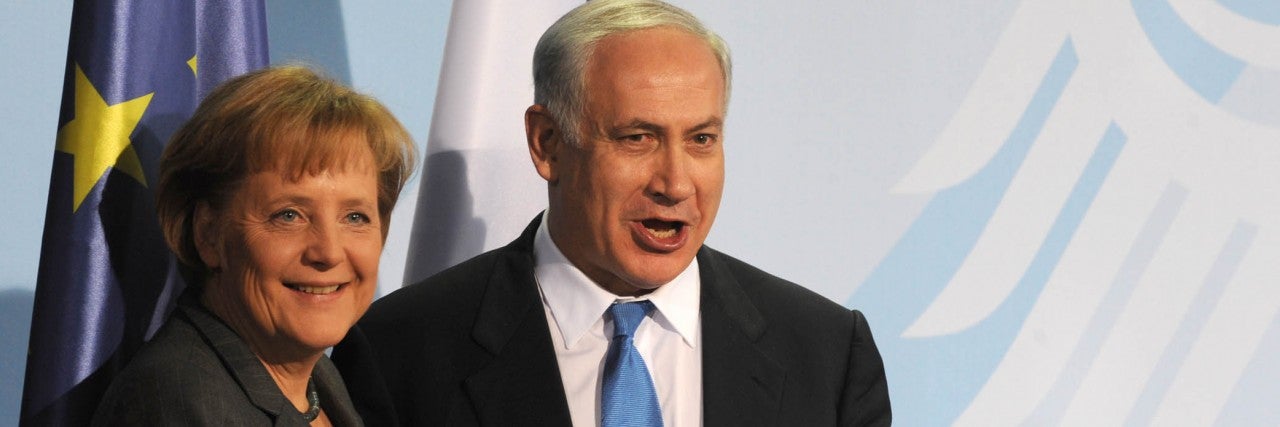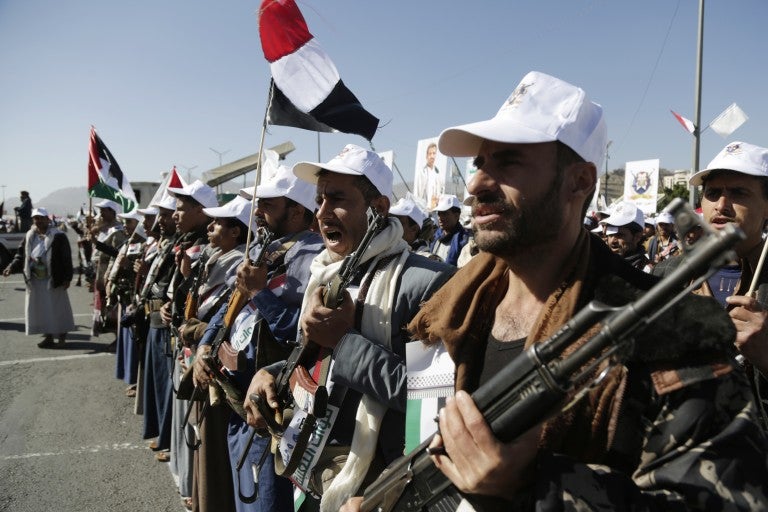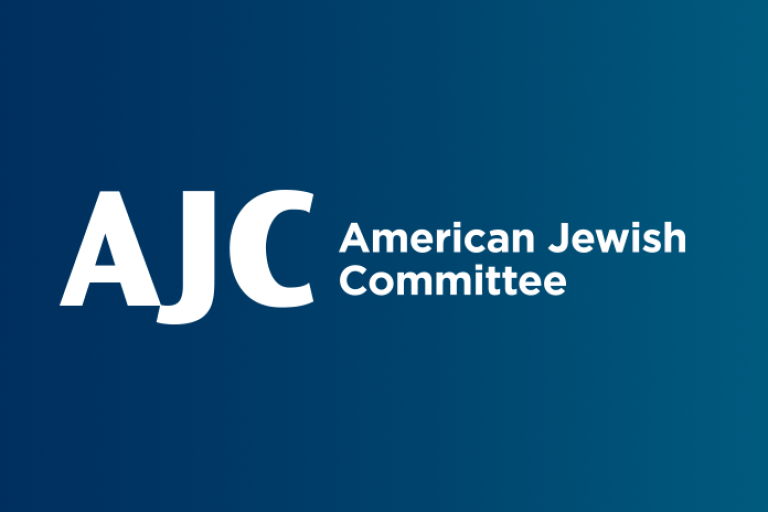June 3, 2018
Israeli Prime Minister Benjamin Netanyahu will hold meetings in European capitals June 4-7. He will confer with German Chancellor Angela Merkel, British Prime Minister Theresa May, and French President Emmanuel Macron, and will attend several events for the France-Israel cross-cultural season.
Here are three things you should know about this visit:
1. Iran will be the main topic of discussion
The meetings will give Netanyahu his first opportunity to speak in person with the leaders of the three European signatories to the JCPOA since President Donald Trump announced U.S. withdrawal from the deal and reimposed sanctions on Tehran, including secondary sanctions, which will affect European companies doing business in Iran. All three European leaders expressed opposition to the administration’s move.
Netanyahu already announced, in a May 28 speech before the Knesset, that he would present Israel’s position to his European counterparts, primarily focusing on the security threats posed by Iran: “There were years when we stood alone against these two threats [Syria and Iran], but I think the situation has changed for the better. Of course I’ll present the things that are essential for Israel’s security.” Netanyahu also reiterated that “there is no room for any Iranian military presence in any part of Syria.” He assured the Knesset that his view “represents the positions of others in the Middle East and also outside it. This will be the main focus of the discussions there.”
Chancellor Angela Merkel, noting that the JCPOA is far from ideal, believes it would be easier to address Iran-related issues with the deal still intact. In a speech on May 16, she said, “we have to talk about its role in Syria, its ballistic missile program, other issues, but the question is whether you can talk better if you terminate an agreement or if you stay in it.“ President Macron was the earliest and most vocal European leader drawing attention to Iran’s aggressive ballistic-missile program, its nefarious regional activities, and the need to address the sunset clause of the JCPOA. The talks with Prime Minister May on these issues come at a time of blooming bilateral relations, months after the Balfour Declaration celebrations. Economic cooperation is growing, British arms export to Israel is reaching a record level. And, for the first time, a member of the royal family is expected to pay a historic visit Israel in June.
2. The Israeli-Palestinian conflict continues to be a burning issue
When the EU foreign ministers next meet in Brussels, they will likely discuss the situation in Gaza as well as the move of the U.S. Embassy to Jerusalem. Both topics will undoubtedly be discussed during Netanyahu’s visit. After the violent riots that started in March at the Gaza border and culminated the week of “Nakba day,” most European leaders condemned Israel’s “disproportionate use of force” against what has been termed “peaceful demonstrations.”
Hamas’s responsibility for orchestrating the riots and causing the violence were not addressed in official declarations from the French Ministry of Foreign Affairs or the Presidency. However, France did condemn this past week’s rocket fire into Israel from Gaza targeting civilians and recalled its unfailing support for Israel’s security. But France supported the latest UN Security Council resolution on Gaza (France was the only EU country voting in favor, together with Kuwait, Russia, China, and Bolivia among others). The resolution was ultimately vetoed by the U.S.
German reaction was more restrained. Chancellor Merkel, speaking to Prime Minister Netanyahu by phone, said she worried about the escalation, but also that Germany understands Israel’s security concerns. The German Foreign Office issued a statement saying that the right to demonstrate must not be misused to spread violence, and “that it would be an important step that those in power in Gaza renounce violence.” Downing Street’s position was quite critical of Israel, calling on its leaders to show “restraint” and requesting an independent and transparent investigation. Theresa May said Israel had a right to defend its borders, but that the use of live fire and the resulting loss of life was "deeply troubling."
3. France-Israel is a celebratory issue
Starting in June 2018, Israel and France will kick off an official cross-cultural year during which over 120 events will be held focusing on innovation, modern art, film, dance, design, literature, music, theatre, and science. Prime Minister Netanyahu’s visit to Paris coincides with the launch.
On June 5, he will join President Macron to inaugurate the flagship exhibition “Israel@lights” at the Grand Palais, one of Paris’s finest museums. This initiative will provide an opportunity for the French public to get to know Israel through a lens other than that of the Israeli-Palestinian conflict and will demonstrate the depth and diversity of French-Israeli cooperation. It comes at a particularly timely moment, since a large proportion of French youth have a negative image of Israel (as revealed by a poll published on the 70th anniversary of the state), as well as a distorted understanding of what Zionism stands for.


